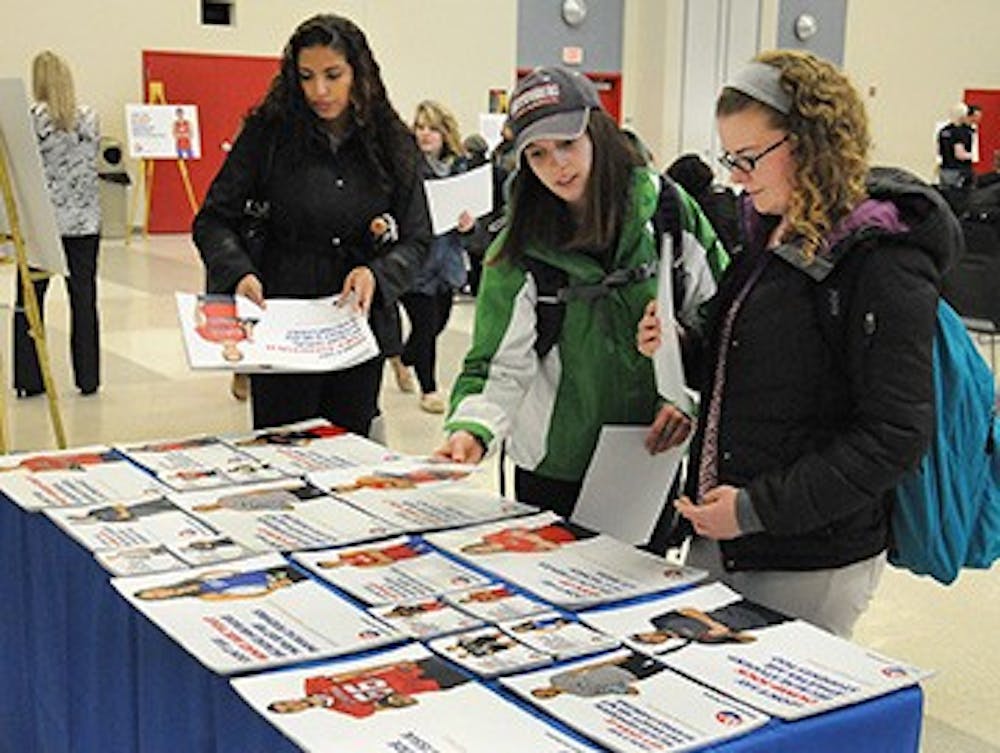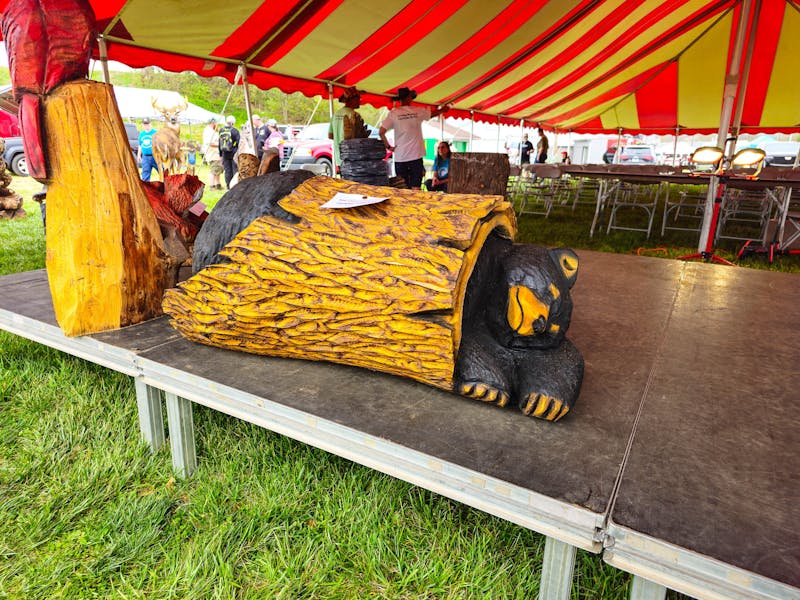“Dumb jock,” “retarded,” “Oreo” — these are the words many young people use in their everyday language, without considering the impact they can cause. They are also words the Student-Athlete Advisory Committee (SAAC) is striving to educate people about in the Shippensburg University community.
SAAC launched its “Don’t Say” campaign last March, in conjunction with the university’s Day of Human Understanding. Posters lined the Ceddia Union Building’s multipurpose room, depicting photos of student-athletes standing next to phrases such as “I don’t say ‘fag’ because it only serves to hurt and oppress gay men.”
The purpose of the “Don’t Say” campaign, inspired by a similar campaign at Duke University, is to educate the campus and public regarding inappropriate language directed toward various groups of people, according to SAAC adviser Ashley Grimm.
Some of the other phrases include: “I don’t say ‘Oreo’ because it insists I act in accord with racial stereotypes,” and “I don’t say, ‘What are you?’ because I am more than just my physical features.”
SAAC Vice President Gabriella Brackett chose the latter phrase to represent.
“People see my big brown eyes, dark curly hair and olive skin complexion and immediately try to lump me in with a certain cultural group without caring to know the person that I am,” Brackett said. “So when I am asked, ‘What I am?’ the first things that come to mind are not my cultural background, but rather that I am a daughter, a sister and a friend.”
Brackett plans to participate in the campaign again this year.
SAAC gave all student-athletes the opportunity to get involved with the campaign. Thirteen athletes, including Brackett, volunteered to pose for the posters last year.
“The athletes who chose to be on our posters used a message they had a personal connection to,” said SAAC President Stefan Szilagyi.
“Those who saw the posters only needed to see one saying on a poster that spoke to them, for them to feel the power of the message.”
Graduate student Liz Parkins participated in the campaign last year, when she was a senior member of the softball team. She chose the phrase, “I don’t say ‘throw like a girl’ because my strength is not limited by my gender.”
“I kind of get frustrated if people assume I’m weak because I’m a woman,” Parkins said. She wants to serve as role model for young girls, especially her 1-year-old niece.
Next semester, SAAC hopes to relaunch its campaign by using different types of media and featuring more student-athletes on its posters. Currently, there are 15-20 new volunteers who want to be featured on the posters, according to Grimm. There is also a possibility that SAAC will film short video clips for online promotion.
Leading up to the first launch last spring, SAAC and the SU athletics department tried to prepare student-athletes for the backlash they might receive from being on the posters. Although there were some negative comments on social media, the majority of the feedback was positive, according to Grimm.
After the Day of Human Understanding, student-athletes pushed the campaign further and started sharing their experiences at conferences and events.
Student-athletes presented “Don’t Say” at the SU Wellness Fair, at the Women’s Consortium retreat last May and even traveled to the state capital. In October, SU students spoke at the Pennsylvania State System of Higher Education Women’s Consortium in Harrisburg.
“That was a very, very powerful moment for me, when I first got to hear their stories and why they chose what [phrase] they chose,” Grimm said of SU’s student-athletes.
At the 2015 SU Campus Life Awards Program, SAAC received the award for Innovative Cultural Awareness Program.
Looking forward, Grimm hopes to nominate SU’s “Don’t Say” campaign for a National Collegiate Athletic Association award.
Many people across campus came together to help launch the campaign at SU. University photographer Bill Smith shot the photos, publications assistant Jessica Kline designed the posters and Sports Information Director Bill Morgal helped promote the campaign online and through social media.
“Putting a real face, someone that you know on a poster, who is standing up for something is, I think, more powerful than just a generic picture or someone you wouldn’t necessarily know,” Grimm said. “It has really been them [student-athletes] getting the word out there, wanting to spread it — telling their story about why they picked the phrase that they picked.”




The Slate welcomes thoughtful discussion on all of our stories, but please keep comments civil and on-topic. Read our full guidelines here.